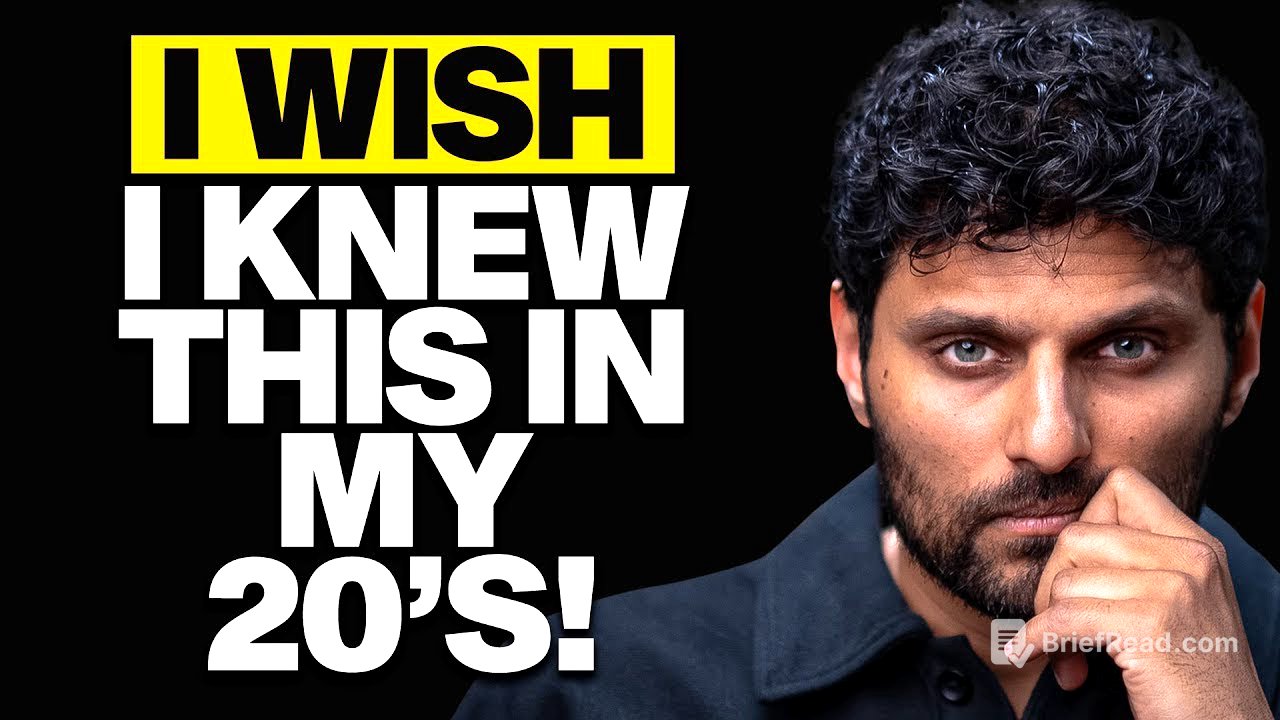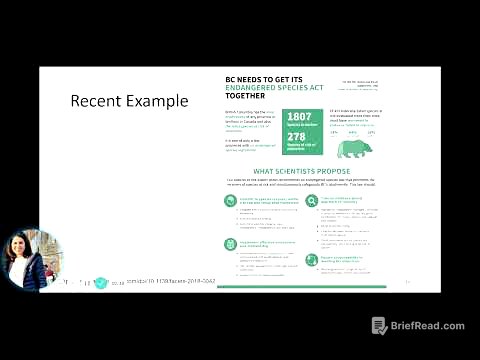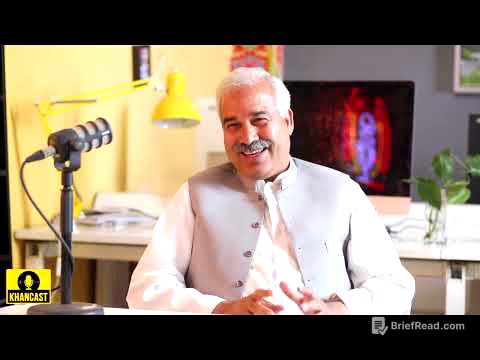TLDR;
This episode of the Jay Shetty Podcast focuses on transforming your relationship with money by addressing common misconceptions and providing actionable steps towards financial literacy. It emphasizes that financial struggles are often due to a lack of education rather than personal failings. The podcast encourages listeners to adopt a secure attachment style with money, make conscious financial decisions, automate savings, invest in financial knowledge, understand debt, simplify financial goals, challenge inherited money beliefs, and practice generosity.
- Financial literacy is a learned skill, not an innate ability.
- Transforming your mindset and relationship with money is key to financial well-being.
- Small, consistent actions and education are more effective than drastic measures.
Intro [0:00]
The podcast introduces the topic of financial literacy, highlighting that many people were never taught how to properly manage money. It addresses common challenges such as debt, understanding income streams, and identifying wasteful spending. The goal is to transform the listener's relationship with money from avoidant or anxious to secure, emphasizing that this doesn't require becoming a millionaire but rather feeling safe and informed about financial matters.
Is It Too Late to Learn Financial Literacy? [1:01]
Jay addresses the common feeling of being overwhelmed and undereducated when it comes to personal finance. He emphasizes that it's not your fault if you weren't taught these skills earlier in life. The episode aims to alleviate the pressure and serve as a starting point for changing your money mindset and transforming your relationship with money. He introduces the concept of attachment styles (secure, anxious, and avoidant) in relation to money, encouraging listeners to strive for a secure relationship with their finances.
Myth: Money is the Root of All Evil [4:18]
The podcast challenges the common saying "money is the root of all evil," clarifying that the actual quote is "the love of money is the root of all evil." It distinguishes between money as a neutral resource and the obsessive pursuit of it. The key is to avoid falling in love with money and recognize that it is not the ultimate goal. This shift in perspective is crucial for transforming one's relationship with money from avoidant or anxious to secure.
#1: It's About Good Decisions, Not Income [5:31]
The first key point is that financial well-being is more about making good decisions than having a high income. People often believe they'll be better with money once they earn more, but studies show that a sense of control over one's finances is a better predictor of financial success. Taking responsibility for financial habits, even when broke, is the first step toward building wealth. Listeners are encouraged to list three money-related decisions they can make today, such as setting up a budget app or canceling a subscription. The importance of openly discussing money and setting financial goals is also emphasized.
#2: You Can't Save What You Don't Have [8:20]
This section explains that people spend what they mentally label as available. To combat this, automation and separation of funds are more effective than relying on discipline alone. Listeners should automate savings by opening a second account and automatically transferring a portion of each paycheck into it, labeling it a "freedom fund" to make it more appealing. The key is to make savings invisible and prioritize saving before spending.
#3: Buying More Won’t Build Wealth [11:26]
The podcast argues that learning about finances is more beneficial than impulsive spending. Financial literacy leads to lower anxiety, more saving, and better life outcomes. Listeners are encouraged to spend time learning about financial concepts like compound interest and inflation. Investing in oneself and one's knowledge is a better investment than buying material possessions. The goal is to stop worrying about money, not to appear rich. It's crucial to balance enjoying life with investing in the future, viewing expenses as a percentage of after-tax income rather than just focusing on the raw numbers.
#4: Don't Avoid Debt Education [17:14]
The importance of understanding debt is highlighted. Avoiding debt education due to fear can lead to mistakes. Listeners are encouraged to learn the basics of APR, credit scores, and interest, and to break down their debts to understand how they work. The key is to approach debt with knowledge and a plan, rather than avoiding it altogether.
#5: You're Not Lazy You’re Just Overwhelmed [18:25]
The podcast addresses the feeling of being overwhelmed by financial decisions, which can lead to avoidance and impulsive spending. Listeners are advised to simplify their financial goals by focusing on just one goal for the next 30 days and tracking only that. The reminder is that a lack of financial education, not laziness, is often the root cause of financial struggles.
#6: Where Did You Get Your Money Beliefs? [19:56]
This section explores how inherited money beliefs can unconsciously drive financial habits. Listeners are encouraged to identify three money beliefs they heard growing up and question whether they still serve them. They should then rewrite one belief to create a more positive and empowering relationship with money. The goal is to stop chasing money out of fear and start building it from wisdom, owning every number in their bank account and learning about finances.
#7: Generosity Multiplies Wealth [23:52]
The final point emphasizes that generosity multiplies wealth rather than draining it. Giving, even in small amounts, improves well-being, long-term wealth mindset, and motivation. Listeners are encouraged to give something small this week, whether it's money, time, a referral, or a skill, and observe how their energy towards money shifts. The podcast concludes by stating that money is not just numbers but also emotion, energy, and identity, and that building a healthy relationship with money is key to long-term financial well-being.









